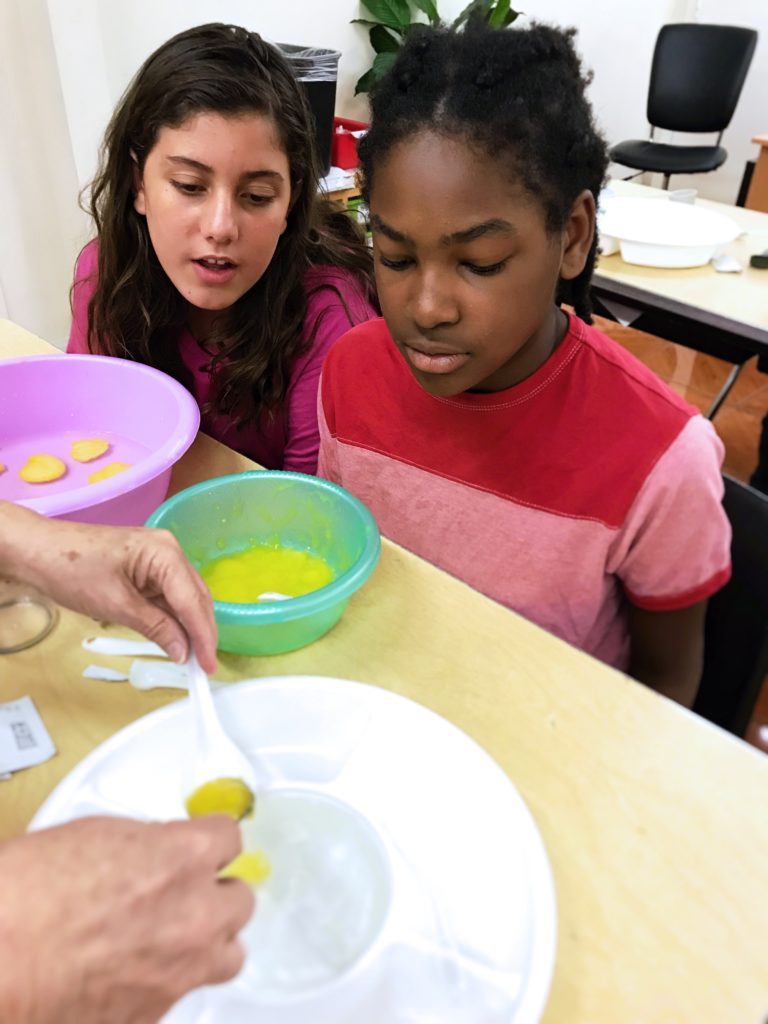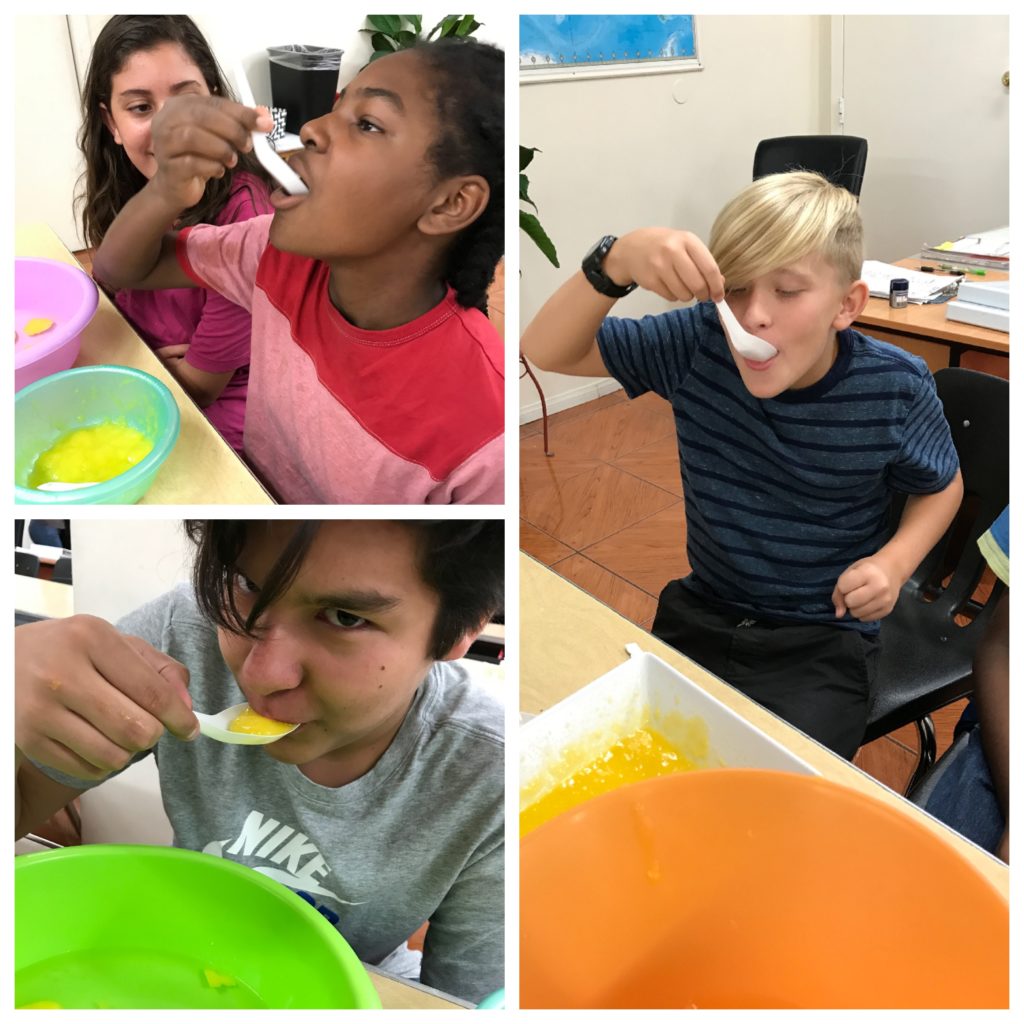What is Molecular Gastronomy? Our students found out in a delicious way!
Molecular: relating to or consisting of molecules. Gastronomy: the practice or art of choosing, cooking, and eating good food.
Molecular Gastronomy: the application of the scientific method to food preparation. The basic idea behind molecular gastronomy is to determine what happens when food cooks, how its physical and chemical properties change, how different methods modify its taste, smell, and texture, and then use this new understanding to create novel dishes.
Calcium Lactate: a calcium salt resulting from the fermentation of lactic acid and calcium. Calcium Lactate is used to regulate acidity levels, in cheese making, as baking soda, as a food thickener and as a preservative for fresh fruits.

Combining Physics, Chemistry and Culinary methods we made spheres out of mango juice. First, we made a water bath with Calcium Lactate and let it dissolve, then combined mango juice with Sodium Alginate (from brown algae). Then, we took teaspoons of the mango liquid and carefully placed it into the calcium bath where they became spheres (while still being a liquid)!
The kids were blown away with their creations and delightedly ate them up when they were finished!
